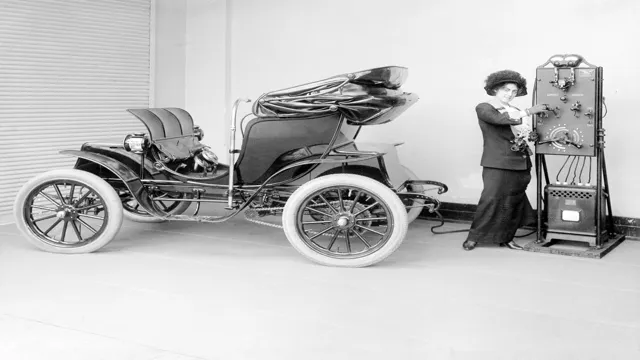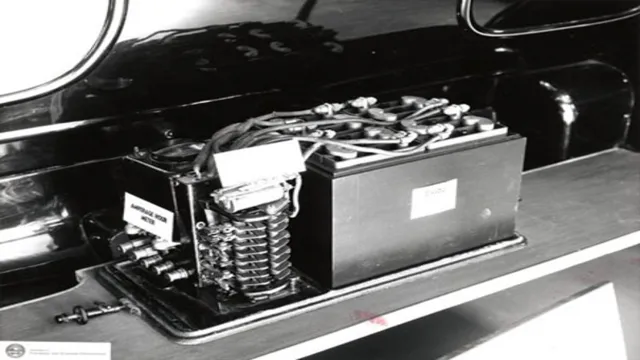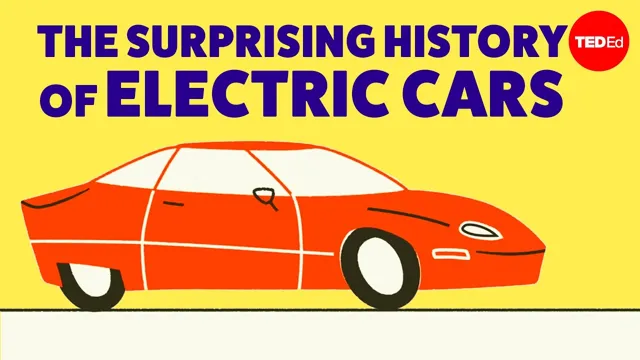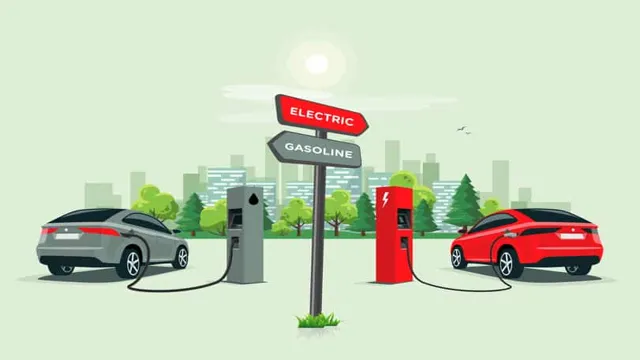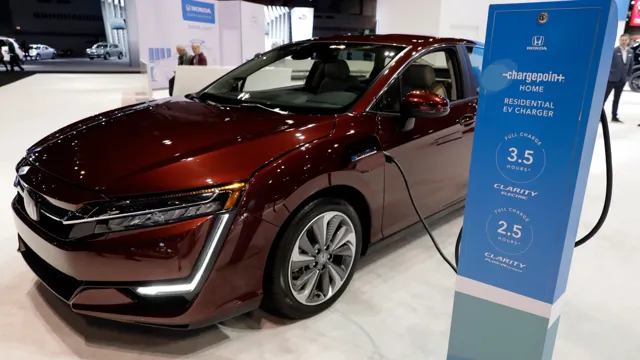Revving Through the Past: A Comprehensive Look at the History of Electric Cars
Electric cars have come a long way over the years, transforming from a novelty to a mainstream vehicle option. The evolution of electric cars has been fascinating to observe, and looking back at their model history unveils a lot about the progress made in the field of sustainable transportation. It’s breathtaking to realize that a few years ago, electric vehicles were viewed as an impractical alternative to conventional cars.
Nowadays, they are quickly becoming the norm and preferred choice for many drivers worldwide due to their eco-friendliness and cost-effectiveness. The growth of electric cars has been spurred by an increase in legislation that favors sustainable means of transport, advances in technology, and a growing interest in renewable energy sources. In this blog post, we take a closer look at the history of electric cars, providing an in-depth discussion of their models, successes, and setbacks from their initial inception to the present.
Are you ready to embark on this exciting journey with us? Let’s dive in and explore the vibrant history of electric cars!
Early Electric Vehicles
Electric cars have been around for much longer than some people realize. In fact, the very first electric vehicle was built in 1837, long before gasoline cars even existed. However, it wasn’t until the late 1800s that electric cars became more popular in Europe and the United States.
One of the best-known early electric cars was the Baker Electric, which was produced from 1899 to 191 These cars had a range of around 50 miles and could reach a top speed of 20 miles per hour. Another popular model was the Detroit Electric, which was produced from 1907 to 193
These cars were known for their reliability and comfort, and they were especially popular among women. While early electric cars had their limitations, they were well-suited for city driving and short trips. Today, electric cars are more popular than ever, and they have come a long way in terms of technology and performance.
1850s-1920s: First Battery-Powered Cars
The early electric vehicles of the mid-19th to early 20th century were the pioneers of battery-powered cars we see today. These early electric vehicles were popular among wealthy urban consumers who used them for short trips due to their limited range and battery power. They were quiet, clean, and easy to operate compared to their gasoline counterparts, which required a hand crank to start.
However, their high cost and limited range made them impractical for long-distance travel, which caused a decline in their popularity from the 1920s. Despite their decline, these early electric vehicles laid the foundation for the modern electric car industry, which has seen a resurgence in recent years due to concerns about environmental pollution and oil depletion. Today, we see electric vehicles that can travel long distances on a single charge, thanks to advances in battery technology.

1960s-1970s: Rise and Fall of Electric Vehicles
The early electric vehicles of the 1960s and 1970s were pioneers in the world of transportation. These vehicles were compact and required no gas, making them a popular choice for those looking for a more environmentally-friendly option. However, the limited range of these vehicles made them impractical for long distances, and the high cost of production made them unaffordable for most consumers.
As a result, the popularity of electric vehicles declined by the 1980s. Despite their short-lived popularity, the early electric vehicles paved the way for the more advanced and practical electric vehicles we see on the roads today. With advancements in technology and a growing concern for the environment, electric vehicles are once again on the rise, proving that the early pioneers were ahead of their time.
Modern Electric Vehicles
Electric cars have come a long way since their inception in the early 19th century. Today’s modern electric vehicles are powered by rechargeable lithium-ion batteries and boast impressive acceleration and range capabilities, making them a viable option for everyday driving needs. The history of electric cars is rooted in innovation and experimentation, with the first electric vehicle patent granted in the United States in 183
However, it wasn’t until the 1990s that electric car models began to gain traction in the industry, with the General Motors EV1 and Toyota RAV4 EV leading the way. Since then, a range of electric car models have entered the market, including the Nissan Leaf, Tesla Model S, and Chevrolet Bolt EV. Advancements in technology and battery architecture continue to push the boundaries of what electric cars can achieve, with many models now offering competitive range and fast-charging capabilities.
As the global push towards eco-friendliness and sustainability grows stronger, it’s likely that we will see more exciting developments from the electric car industry in the years to come.
1990s: GM’s EV1 and Toyota’s RAV4 EV
In the 1990s, electric vehicles (EVs) started to garner mainstream attention thanks to General Motors’ EV1 and Toyota’s RAV4 EV. The EV1, in particular, was revolutionary for its time, boasting a battery range of up to 140 miles. While the EV1 was only produced for a limited time and eventually discontinued, it paved the way for future EV advancements.
Fast forward to today, and the modern EV market is thriving. With advancements in battery technology, charging infrastructure, and public interest, EVs are becoming more accessible and popular than ever before. Companies like Tesla, Nissan, and Chevrolet are leading the way in producing high-quality EVs with impressive performance and range capabilities.
As a society, we are gradually shifting towards a more sustainable future, and EVs are a significant step towards that goal.
2000s: Tesla Roadster and Nissan Leaf
The 2000s saw the birth of modern electric vehicles, with the Tesla Roadster and Nissan Leaf leading the charge. The Tesla Roadster introduced consumers to the idea that electric vehicles could be sleek, high-performance, and something to aspire to own. Its powerful acceleration and impressive range challenged preconceived notions about electric cars, and paved the way for future models.
The Nissan Leaf, on the other hand, was designed to be more accessible to the average consumer. Its affordable price point and five-door hatchback design made it a practical choice for families and commuters alike. Both vehicles helped to increase awareness and interest in electric cars, and were vital to shaping the industry we see today.
It’s incredible to think how far electric vehicles have come in just a few short decades, and how much they continue to evolve. With advancements in technology and infrastructure, the possibilities for the future of electric cars are endless. Who knows? Perhaps one day we’ll look back on the 2000s as just the beginning of a revolutionary new era in transportation.
2010s: Expanding EV Market and Advancements in Technology
As we entered the 2010s, the electric vehicle (EV) market rapidly expanded with the introduction of new and improved models. Modern electric vehicles offer a range of benefits, including reduced emissions and lower fuel costs. With advancements in technology, EVs have become more practical for everyday use with longer ranges and faster charging times.
One major innovation in EV technology has been the development of regenerative braking systems that use the vehicle’s momentum to generate energy, which can be stored and used to power the vehicle. Additionally, many modern EVs come with advanced features like autonomous driving capabilities and touch screen interfaces. However, despite all the advancements, challenges still exist such as the lack of widespread charging infrastructure and the relatively high upfront costs of EVs.
Nonetheless, the future of electric vehicles looks bright as more and more manufacturers invest in this growing market to offer consumers cleaner and more efficient transportation options.
Current and Future Electric Car Models
The history of electric cars dates back to the mid-19th century, with several notable models being released in the early 20th century, such as the Baker Electric, Detroit Electric, and Columbia Electric. However, the advent of gas-powered cars dominated the market and electric cars were largely forgotten until recently. In the last decade, electric cars have made a significant comeback.
Tesla led the way with the release of the Model S, followed by other models such as the Nissan Leaf, Chevy Volt, and BMW i These cars have proven to be popular due to their environmentally friendly technology and long-range capabilities, making them a viable option for everyday use. Looking to the future, companies such as Volkswagen, Audi, and Porsche have ambitious plans to release new electric car models in the coming years.
The electric car market is expected to continue to grow, with more innovative technologies being developed to increase power efficiency and range. Overall, the history of electric cars has been a bumpy ride, but with advances in technology, it’s clear that these cars are here to stay.
Tesla Model S, Model X, Model 3, and Model Y
When it comes to electric cars, Tesla is one of the most popular and well-known brands on the market. They offer a range of models, including the Model S, Model X, Model 3, and Model Y. Each of these cars has its unique features and specifications, making them suitable for different types of drivers.
The Model S is a luxury sedan with impressive acceleration and a long-range battery. The Model X is an SUV with gull-wing doors and the ability to tow heavy loads. The Model 3 is a more affordable option that still offers excellent performance, while the Model Y is a compact SUV that combines the best features of the Model 3 and Model X.
Tesla also has plans to release new models in the future, such as the Cybertruck and the Roadster. These vehicles promise to be even more impressive than their predecessors, with cutting-edge technology and exciting design features. Whether you’re looking for luxury, affordability, or simply a fun and efficient way to get around, Tesla has an electric car that’s sure to meet your needs.
Chevrolet Bolt and Volt
Chevrolet has been making waves in the electric car world with their two most popular models – the Bolt and the Volt. The Chevrolet Bolt is a fully electric hatchback that has a range of over 200 miles on a single charge, making it a great option for a variety of lifestyles. The Bolt also has a spacious and comfortable interior, making it perfect for longer trips.
On the other hand, the Chevrolet Volt is a plug-in hybrid that has a range of up to 53 miles purely on electric power. After the electric power runs out, it can continue to run on gasoline, giving drivers a total range of over 400 miles. The Volt also has a sleek and modern design, making it a popular choice among car enthusiasts.
As electric cars continue to grow in popularity, Chevrolet has taken great strides in creating innovative and efficient models that cater to a variety of drivers. With both the Bolt and the Volt, Chevrolet has proven that they are a force to be reckoned with in the electric car market.
BMW i3 and i8
When it comes to electric cars, BMW is a brand that has made significant strides in the industry. The BMW i3 and i8 are two such models that are currently leading the way in electric car technology. The BMW i3 is a small, city car that packs a punch with its electric motor and battery.
It’s perfect for those looking for an eco-friendly vehicle that’s easy to park and maneuver around tight city streets. On the other hand, the BMW i8 is a sporty and futuristic-looking coupe that offers the best of both worlds. Its electric motor provides efficient and eco-friendly power for everyday driving needs, while its unique hybrid powertrain delivers performance and speed when it’s needed most.
What’s more, BMW has hinted at plans for future electric car models, including an i5 sedan and an electric version of the popular X3 SUV. With the brand’s commitment to cutting-edge electric car technology, it’s no surprise that BMW is a leading player in the constantly evolving world of electric cars.
Upcoming EVs from Ford, Audi, and Volkswagen
Electric Cars Electric cars have taken the automobile industry by storm over the past decade, and the trend doesn’t seem to be slowing down anytime soon. With every passing year, more and more automakers are jumping on the electric bandwagon and introducing new models. Ford, Audi, and Volkswagen are just a few of the big names in the industry that are heavily investing in electric cars.
Ford is set to release their highly anticipated Mustang Mach-E, which is an electric SUV with an estimated range of up to 300 miles on a single charge. Audi, on the other hand, has plans to release their e-tron GT, which is a luxury electric sedan with a sleek and modern design. And Volkswagen is going all-in with their ID.
4 electric SUV, which is set to take on the popular Tesla Model Y. These are just a few of the current and upcoming electric car models that have got enthusiasts buzzing with excitement. With each new electric car, the future of driving gets brighter, greener, and more sustainable.
Conclusion
As the history of electric cars progresses, it’s clear that we’re witnessing a paradigm shift in transportation. What once seemed like futuristic sci-fi technology is now becoming more and more normalized in our daily lives. Despite early struggles and setbacks, it’s important to remember that electric cars have been around for over a century, evolving and improving with each passing year.
Today, we find ourselves looking at an exciting future filled with new technological advancements, increased accessibility, and a greater commitment to sustainability. It’s time to buckle up and embrace the electrifying ride ahead!”
FAQs
What is the history of electric cars?
Electric cars have been around since the 19th century, but the first successful electric car was the Baker Electric in 1899.
When were electric cars first produced for the mass market?
Electric cars were first produced for the mass market in the early 21st century, with models like the Nissan Leaf and the Tesla Model S.
What is the range of electric cars?
The range of electric cars can vary depending on the model, but most modern electric cars have a range of between 100-300 miles on a single charge.
How do electric cars compare to gasoline-powered cars in terms of efficiency?
Electric cars are much more efficient than gasoline-powered cars, as they convert up to 60% of the energy stored in the battery to power the wheels, while internal combustion engines only convert about 20% of the energy in gasoline to power the wheels.
